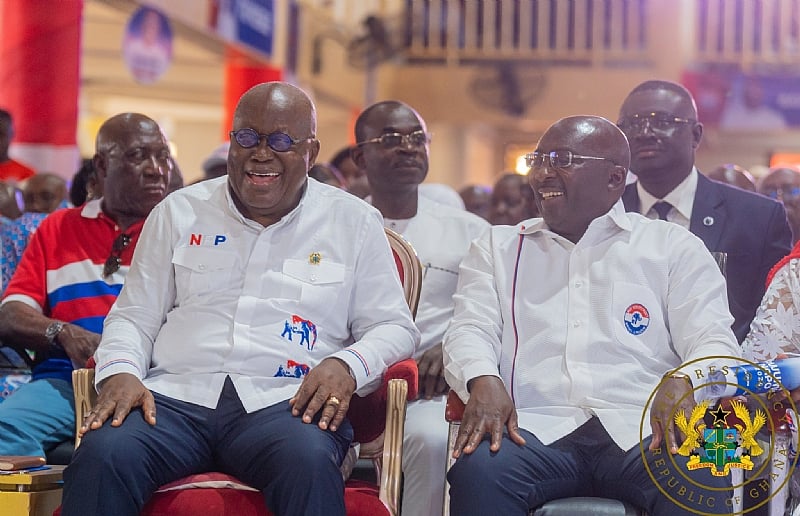The New Patriotic Party’s (NPP) significant defeat in the 2024 general election, according to Dr. Jonathan Asante, a political science lecturer at the University of Cape Coast, can be largely attributed to the leadership of former President Nana Addo Dankwa Akufo-Addo. Dr. Asante estimates that Akufo-Addo’s leadership contributed approximately 60% to the party’s loss, a sentiment that echoes earlier concerns voiced by Sammy Crabbe, former Vice Chairman of the NPP, regarding the party’s weakened state. This analysis points towards a deeper issue within the NPP, suggesting that the party’s structures were significantly neglected during Akufo-Addo’s tenure, ultimately hindering their electoral performance.
A crucial aspect of Dr. Asante’s critique focuses on the detrimental impact of neglecting party structures. He posits that the NPP’s operational model under Akufo-Addo resembled a “one-man show,” weakening the party’s foundation and making it vulnerable to electoral setbacks. This centralization of power, according to Dr. Asante, disempowered the broader party membership and created a disconnect between the leadership and the grassroots, ultimately eroding the party’s ability to effectively mobilize support and respond to evolving political dynamics. This organizational weakness, coupled with the perceived arrogance of government appointees, fostered a growing resentment among the electorate, contributing to the widespread opposition that ultimately sealed the NPP’s fate in the 2024 elections.
The perceived arrogance displayed by government appointees during Akufo-Addo’s administration further fueled public discontent and contributed to the NPP’s downfall. This behavior, according to Dr. Asante, created an image of detachment and insensitivity to the concerns of ordinary citizens, exacerbating the already existing frustration stemming from neglected party structures and perceived leadership failures. The combination of these factors cultivated a negative perception of the NPP, eroding public trust and diminishing the party’s appeal to the electorate. This widespread dissatisfaction manifested in the 2024 elections as a decisive rejection of the NPP’s bid for a renewed mandate.
Dr. Asante’s analysis also highlights the responsibility of the then-presidential candidate, Dr. Bawumia, for the NPP’s defeat, attributing approximately 40% of the loss to his own shortcomings. While acknowledging the significant influence of Akufo-Addo’s leadership, Dr. Asante suggests that Dr. Bawumia also played a role in the unfavorable outcome. This shared responsibility underscores the complex interplay of factors that contributed to the NPP’s electoral setback, suggesting that a combination of leadership failures, both at the presidential and party levels, ultimately led to their defeat.
While the NPP grapples with the aftermath of its electoral defeat, the future of the National Democratic Congress (NDC) hinges on the performance of the Mahama-led administration. Dr. Asante observes that the NDC’s electoral prospects are intricately linked to the current government’s ability to effectively govern and address the needs of the populace. The public’s evaluation of the NDC’s performance in office will significantly influence their voting decisions in future elections, underscoring the importance of effective governance and responsiveness to public concerns.
In summary, Dr. Asante’s assessment paints a picture of a party struggling with internal weaknesses and a disconnect from its electorate. He argues that the NPP’s defeat in the 2024 elections was a culmination of several factors, including the neglect of party structures, the perceived arrogance of government appointees, and leadership failures, both under Akufo-Addo and Bawumia. The significant contribution of Akufo-Addo’s leadership to the party’s downfall highlights the importance of robust party structures and a leadership style that fosters inclusivity and responsiveness. Meanwhile, the NDC’s future electoral performance remains contingent on the success of the Mahama administration, emphasizing the crucial role of effective governance in maintaining public trust and securing electoral victories. The 2024 election results serve as a stark reminder of the consequences of neglecting party infrastructure and failing to address public concerns, offering valuable lessons for both the NPP and the broader political landscape.














